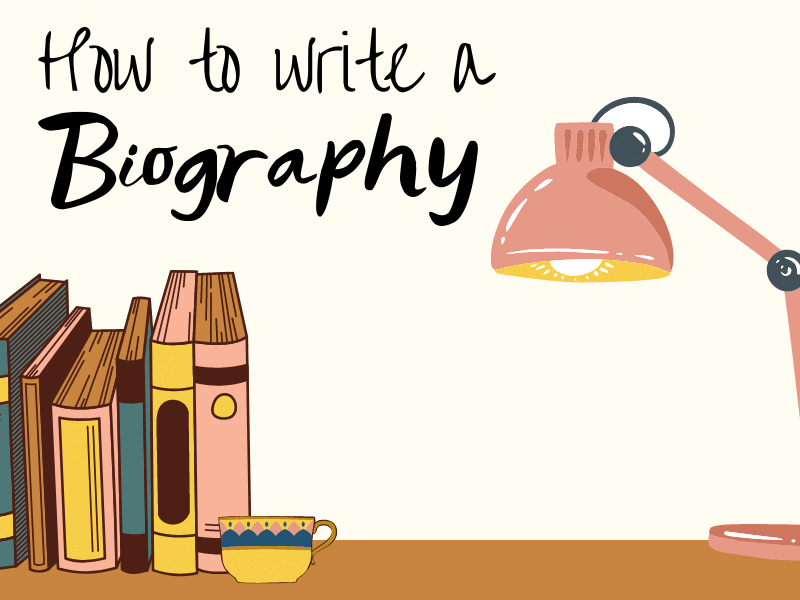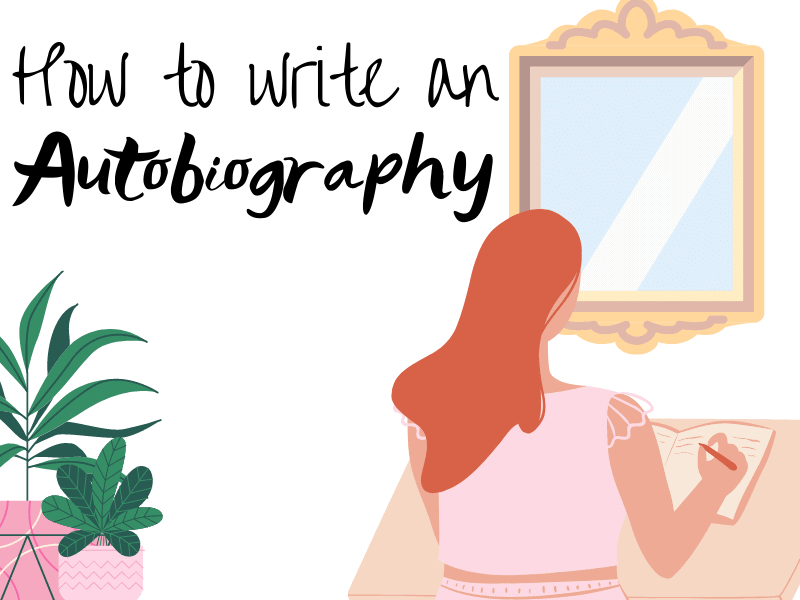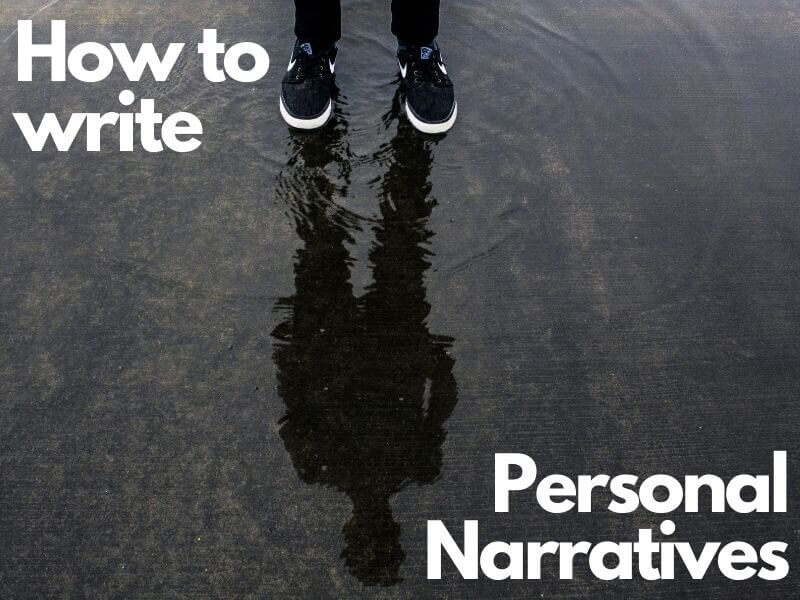A Biography Is A Form Of Writing That

How to Write a Biography

Biographies are big business. Whether in book form or Hollywood biopics, the lives of the famous, and sometimes not so famous, fascinate us.
While it's true that most biographies are about people who are in the public eye, sometimes the subject is less well known. Mostly though, famous or not, the person who is written about has led a life that is in some way incredible.
While your students will most likely have a basic understanding of what a biography is, it's worth taking a little time before they put pen to paper to tease out a crystal clear definition of exactly what a biography is.
What Is a Biography?

Simply put, a biography is an account of someone's life written by someone else. While there is a genre known as fictional biography, for the most part, biographies are by definition nonfiction.
Generally speaking, biographies provide an account of the subject's life from the earliest days of their childhood, right up to the present day or their death, if the subject is deceased.
The job of a biography is more than just to outline the bare facts of a person's life.
Rather than just listing the basic details of their upbringing, hobbies, education, work, relationships, and death, a well-written biography should also paint a picture of the subject's personality and as well as their experience of life.
A COMPLETE UNIT ON RECOUNT WRITING

Learn the building blocks of creating RADICAL RECOUNTS using a proven model of research skills, writing strategies and engaging content. ALL CONTENT, RESOURCES AND ASSESSMENT TOOLS INCLUDED.
Teach your students to write AMAZING RECOUNTS in a range of styles with this COMPLETE 78 PAGE UNIT. No preparation is required.
What Are the Main Features of a Biography?
Before students begin writing a biography, they'll need to have a firm grasp of the main features of the genre. A good way of initially determining how well they understand these essential elements of the genre is by asking them to compile a checklist.
At a minimum, their checklists should contain the items below. Be sure to help them fill in any gaps before moving on to the writing process.
The purpose of a biography is to provide an account of someone's life
Tense: Written in the past tense (though ending may shift to the present/future tense)
Structure:
● Written in the third person
● Opens with a strong hook to grab the reader's attention
● Usually written in chronological order
● Uses time connectives
● Covers: childhood, upbringing, education, influences, accomplishments, relationships, etc – everything that helps the reader to understand the person
● Gives specific details about people, places, events, times, dates, etc
● Reflects on how events shaped the subject
● May include some relevant photographs with captions
● Concludes with what the subject is doing now or what their legacy will be.
Practical Activity:
Once your students have compiled a comprehensive checklist of the main features of a biography, allow them to use it to assess some biographies from the library using the checklist.
When students have assessed a selection of biographies, take some time as a class to discuss them. You can base the discussion around the following prompts:
● Which biographies covered all the criteria from their checklist?
● Which biographies didn't?
● Which biography was the most readable in terms of structure?
● Which biography do you think was the least well structured? How would you improve this?
Taking the time to look at how other writers have interpreted the form will help students to internalize the necessary criteria before attempting to produce a biography themselves.
Once students have a clear understanding of the main features of the biography, they're ready to begin work on writing a biography.
When the time does come to put pen to paper, be sure they're armed with the following top tips to help ensure they're as well prepared as possible.
Tips for Writing a Brilliant Biography
Biography Writing Tip #1: Choose Your Subject Wisely
There are several points for students to reflect on when deciding on a subject for their biography. Let's take a look at the most important points to consider when deciding on the subject for a biography:
Interest: To produce a biography will require sustained writing from the student.
That's why students must choose their subject well.
After all, a biography is an account of someone's entire life to date. Students need to ensure they choose a subject that will sustain their interest throughout the research, writing, and editing processes.
Merit: Closely related to the previous point, students will need to consider whether the subject merits the interest of the reader.
Aside from pure labors of love, writing should be undertaken with the reader in mind. While producing a biography demands sustained writing from the author, it also demands sustained reading from the reader.
Therefore, students should ask themselves if their chosen subject has had a life that is worthy of the interest of the reader and the time they'd need to invest to read their biography.
Information: Is there enough information available on the subject to fuel the writing of an entire biography?
While it might be a tempting idea to write about a great-great-grandfather's experience in the war. There would be enough interest there to sustain the author's and the reader's interest, but do you have enough access to information about their early childhood to do the subject justice
in the form of a biography?
Practical Biography Writing Activity:
Instruct students to draw up a shortlist of 3 potential subjects for the biography they'll write.
Using the 3 criteria above (Interest, Merit, Information), students award each potential subject a mark out 5 for each of the criteria. In this manner, students will be able to select the most suitable subject for their biography.
Biography Writing Tip #2: Research!
While the chances are good that the student will already know quite a bit about the subject they've chosen. Chances are 100% that they'll still need to undertake considerable research to write their biography.
As with many types of writing, research is an essential part of the planning process that shouldn't be overlooked. If a student wishes to give as full an account of their subject's life as possible, they'll need to put in the time at the research stage.
An effective way to approach the research process is to:
1. Compile a chronological timeline of the main facts, dates, and events of the subject's life
2. Compile detailed descriptions of the following personal traits:
● Physical looks
● Character traits
● Values and beliefs
3. Compile some research questions based on different topics to provide a focus for the research:
● Childhood: Where and when were they born? Who were their parents? Who were the other family members? What education did they receive?
● Obstacles: What challenges did they have to overcome? How did these challenges shape them as individuals?
● Legacy: What impact did this person have on the world and/or the people around them?
● Dialogue & Quotes: Dialogue and quotations by and about the subject are a great way to bring color and life to a biography. Students should keep an eagle eye out for the gems that hide amid their sources.
As the student gets deeper into their research, new questions will arise that can further fuel the research process and help to shape the direction the biography will ultimately go in.
Likewise, it's during the research that themes will often begin to suggest themselves. Exploring these themes is essential to bring depth to a biography, but we'll discuss this more later on in this article.
Research Skills:
Researching for a biography is a great way for students to hone their research skills in general. Developing good research skills is essential for future academic success. Students will have opportunities to learn how to:
● Gather relevant information
● Evaluate different information sources
● Select suitable information
● Organize information into a text.
Students will have access to print and online information sources and, in some cases, they may also have access to people who knew or know the subject (e.g. biography of a family member).
These days, much of the research will likely take place online. It's important therefore to provide your students with some guidance on how to use the internet safely and how to evaluate online sources for reliability. This is the era of 'fake news' after all!
Practical Activity:
Students begin by making a timeline of their subject's life starting with their birth and ending with their death or the present day.
If the student has yet to make a final decision on the subject of their biography, as a practice exercise, a family member will often serve well for this exercise.
Students should research and gather the key events of the person's life, covering each period of their life from when they were a baby, through childhood and adolescence, right up to adulthood and old age.
They should then organize these onto a timeline. Students can include photographs with captions if they have them.
When they have finished their timelines they can present these to the class.
COMPLETE UNIT ON INTERNET RESEARCH SKILLS USING GOOGLE SEARCH

Teach your students ESSENTIAL SKILLS OF THE INFORMATION ERA to become expert DIGITAL RESEARCHERS.
⭐How to correctly ask questions to search engines on all devices.
⭐ How to filter and refine your results to find exactly what you want every time.
⭐ Essential Research and critical thinking skills for students.
⭐ Plagiarism, Citing and acknowledging other people's work.
⭐ How to query, synthesize and record your findings in a logical manner.
Tip #3: Find Your Themes In Biography Writing
Though predominantly a nonfiction genre, the story still plays a large role in good biography writing.
The skills of characterization and plot structuring are transferable here. And, just like in fiction, exploring themes in a biographical work helps connect the personal to the universal.
Of course, these shouldn't be forced; this will make the work seem contrived and the reader may lose faith in the truthfulness of the account. A biographer needs to gain and maintain the trust of the reader.
Fortunately, themes shouldn't need to be forced. A life well-lived is full of meaning and the themes the student writer is looking for will emerge effortlessly from the actions and events of the subject's life. It's just a case of learning how to spot them.
One way to identify the themes in a life is to look for recurring events or situations in a person's life. These should be apparent from the research completed previously. The students should seek to identify these patterns that emerge in the subject's life.
For example, perhaps they've had to overcome various obstacles throughout different periods of their life. In that case, the theme of overcoming adversity is present and has been identified.
Usually, a biography has several themes running throughout, so be sure your students work to identify more than one theme in their subject's life.
Practical Activity:
Instruct students to look over their timeline, notes, and other research. Challenge them to identify 3 patterns that repeat throughout the subject's life and s
ort all the related events and incidents into specific categories.
Students should then label each category with a single word. This is the thematic concept or the broad general underlying idea.
After that, students should write a sentence or two expressing what the subject's life 'says' about that concept.
This is known as the thematic statement. With the thematic concepts and thematic statements identified, the student now has some substantial ideas to explore that will help bring deeper meaning and wider resonance to their biography.
Tip: #4 Put Something of Yourself into the Writing
While the defining feature of a biography is that it gives an account of a person's life, students must understand that this is not all a biography does.
Relating the facts and details of a subject's life is not enough. The student biographer should not be afraid to share their thoughts and feelings with the reader throughout their account of their subject's life.
The student can weave some of their personality into the fabric of the text by providing commentary and opinion as they relate the events of the person's life and the wider social context at the time.
Unlike the detached and objective approach, we'd expect to find in a history textbook, in a biography student-writers should communicate their enthusiasm for their subject in their writing.
This makes for a more intimate experience for the reader, as they get a sense of getting to know the author as well as the subject they are writing about.
Practical Biography Writing Activity:
Instruct students to write a short objective account of an event in their own life. They can write about anyone from their past. It needn't be more than a couple of paragraphs, but the writing should be strictly factual, focusing only on the objective details of what happened.
Once they have completed this, it's time to rewrite the paragraph but this time they should include some opinion and personal commentary.
The aim for the student here is to inject some color and personality into their writing; to transform a detached, factual account into a warm, engaging story.
WRITING CHECKLIST & RUBRIC BUNDLE

To Conclude
By this stage, your students should have a good technical overview of a biography's essential elements.
They should be able to choose their subject in light of how interesting and worthy they are, as well as give consideration to the availability of information out there.
They should be able to research effectively and identify emerging themes in their research notes.
And, finally, they should be able to bring some of their personality and uniqueness into their retelling of the life of another.
Remember that writing a biography is not only a great way to develop a student's writing skill, it can be used in almost all curriculum areas. For example, to find out more about a historical figure in History, to investigate scientific contribution in Science, or to celebrate a hero from everyday life.
Biography is a great genre for students to develop their writing skills and to find inspiration in the lives of others in the world around them.
HOW TO WRITE A BIOGRAPHY TUTORIAL VIDEO
OTHER GREAT ARTICLES RELATED TO BIOGRAPHY WRITING

How to write an Autobiography
How to Write an Autobiography A quick scan of the bestseller lists will quickly reveal that we are obsessed with the lives of other people. Books by and about actors, politicians, and sports stars regularly top the charts, as we seek to catch a glimpse into the lives of remarkable people. While many of…

How to Write a Historical Recount Text
Learn how to craft an excellent historical recount with our comprehensive guide for students and teachers.

15 Awesome Recount & Personal Narrative Topics
Posted on
15 meaningful recount prompts for students

How to Write a Personal Narrative
Learn the essential skills to writing an insightful personal narrative in our complete guide for students and teachers.
Content for this page has been written by Shane Mac Donnchaidh. A former principal of an international school and university English lecturer with 15 years of teaching and administration experience. Shane's latest Book the Complete Guide to Nonfiction Writing can be found here. Editing and support for this article have been provided by the literacyideas team.
A Biography Is A Form Of Writing That
Source: https://literacyideas.com/how-to-write-a-biography/
Posted by: murphyroyshe.blogspot.com

0 Response to "A Biography Is A Form Of Writing That"
Post a Comment